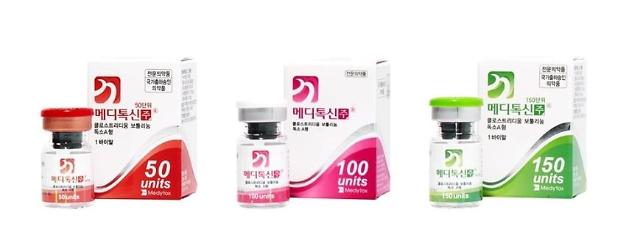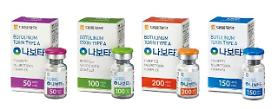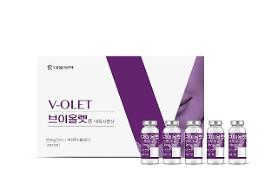
[Courtesy of Medytox]
SEOUL -- South Korea's public health watchdog canceled approval for three botulinum toxin (botox) products produced by Medytox for fabricating test data. The company was ordered to recall and dispose of the products despite advice from medical experts that safety concerns are "not significant."
The decision is effective as of June 25. The Ministry of Food and Drug Safety accused Medytox of covering up document manipulation to win state approval with fabricated test reports. The company's botox product, named Meditoxin in South Korea and Neuronox abroad, was approved in March 2006. Botox was introduced in South Korea mainly for the aesthetic treatment of facial wrinkles.
"Companies that distribute inadequate products by fabricating documents cannot be trusted, and mendacity not only has a significant impact on national health and public welfare but can also have a significant and negative impact on international credibility of the domestic pharmaceutical industry as a whole," the watchdog said in a statement.
Despite the use of an undiluted solution different from permitted contents, documents were fabricated as if they were produced with the authorized undiluted solution, the watchdog said. A pharmacist review committee agreed that safety concerns are not significant, it said, calling for the tightened screening of medical and health products.
The watchdog has investigated Medytox on a report by the Anti-Corruption and Civil Rights Commission that the company has committed illegal activities in the production of Medytoxin. The commission addresses public complaints, improves unreasonable systems, and prevents corruption in the public sector.
In October, Medytox to recall and dispose of some botox products distributed by Medytox abroad because they were found to be unfit for quality standards.
Medytox has been locked in a patent war with its domestic rival, Daewoong Pharmaceutical, which unveiled Nabota, a botox product for the treatment of frown lines, in 2016 and secured approval from the U.S. Food and Drug Administration. Medytox filed lawsuits in U.S. and South Korean courts, claiming that Daewoong has violated trade secrets by recruiting a former Medytox employee to steal information on strains and manufacturing.
Botulism toxins are produced by bacteria of the genus Clostridium. Medytox insisted its botulinum strain type A "Meditoxin" cannot be found in a natural state because it does not form spores. However, Daewoong has secured approval to sell Nabota in Indonesia and the United Arab Emirates.
Copyright ⓒ Aju Press All rights reserved.



